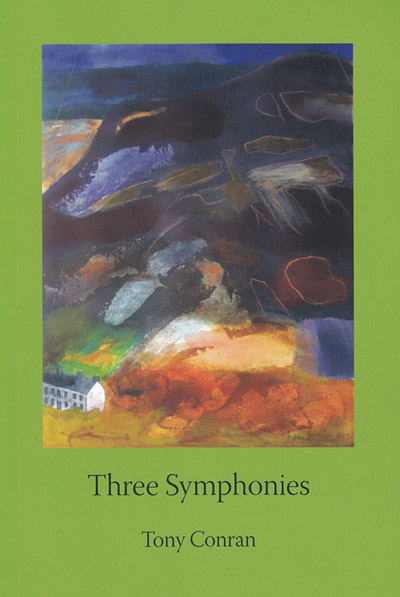Review:Three Symphonies
From Planet 225

Greg Hill reviews
Three Symphonies
by Tony Conran

Agenda Editions, £10.00
Tony Conran has always been an ambitious writer both as a critic and as a poet, taking an original approach to both pursuits. As a young man, deciding to try his hand at rendering Welsh poems into English he embarked on a project of translating the whole range of Welsh verse from its earliest beginnings to the present. The formal structures and the element of praise in Welsh verse also had a profound effect on his work as a poet writing in English. Both of these are apparent in the conceptual grouping of his poems into symphonic forms and in the thematic focus of his work. This collection comprises the last three of his nine symphonic groupings and also reveals a number of other influences on the younger poet, in particular that of Robert Graves, someone whose ideas about the muse-inspired role of a poet, as expressed in his book The White Goddess, was clearly a major influence.
Large structural forms suggest an analogy with the twentieth-century modernists. But, as Jeremy Hooker observes in his insightful introduction, Tony Conran is also a lyric poet whose lyrics combine into larger dramatic structures. Many composers draw on shorter musical fragments to shape their symphonic works as well as including ‘quotations’ from the works of other composers, as Conran also does, both directly and indirectly, from other writers. To what extent, then, is it meaningful to think of these sequences as symphonic? Each has its title and sub-description: ‘The Magi’, for example, is described as a sequence, ‘Fabrics’ as a single movement of sonnets, and ‘Everworlds’ as a symphony in four movements, one of which is a requiem.
Sign in to read more